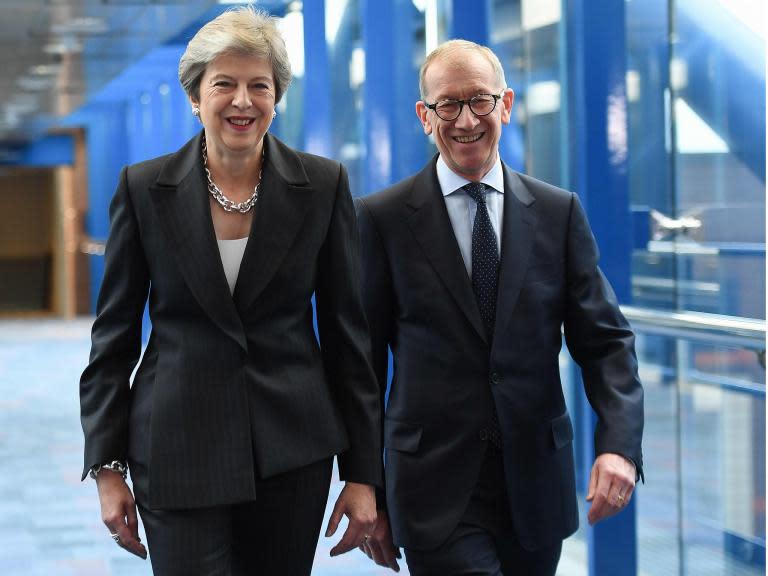Will the Daily Mail and the Daily Express secure Theresa May's leadership and a soft Brexit?
In the nearly two and a half years since the Brexit referendum, headlines in pro-Leave newspapers have regularly snarled at anyone who dares soften or delay Britain’s EU departure.
When 15 Conservative MPs were planning to vote against enshrining the Brexit date in law, they were slammed by The Daily Telegraph as “Brexit Mutineers”, their faces slapped on the front page as if they were featuring in a “wanted” poster.
Meanwhile, we’ve seen the Daily Express pronounce on the need to “silence EU exit whingers”, The Sun describe Donald Tusk and Emmanuel Macron as “EU dirty rats”, and the Daily Mail attack senior judges as “Enemies of the People”.
Having largely supported the campaign to ditch the European Union back in 2016, the right-leaning media put its weight firmly behind those who have pushed for a “hard” departure. Talk of remaining in the customs union has been met with cries of disbelief, while any sign that Britain might still have to accept EU rules on free movement of people has been taken as treason of the highest order.
But is all that now changing?
On Friday of last week, as hard Brexiteers pummelled the prime minister’s withdrawal deal, the Daily Mail asked of her critics: “Have they lost the plot?” Theresa May was described as “calm and composed”, compared to the “shrill baying of the peacocking saboteurs”.
Meanwhile, over at the Daily Express, May was said to be “defiant” in the face of a “coup” by her opponents. An editorial praised “our dutiful prime minister, doggedly battling away in circumstances that would finish off most people”, and criticised “the shameful Tory MPs who are lining up to attack Ms May”.
For the prime minister, the support of these two right-leaning, mid-market newspapers must come as a relief amidst the political fallout of recent days. The Sun and The Daily Telegraph have not given her the same backing, but nor have they gone on the offensive – at least not yet.
So what’s going on? In part May has got lucky. The Mail’s stance has plainly shifted since the arrival of Geordie Greig as editor – Greig, remember, was formerly the editor of The Mail on Sunday, which backed Remain in the referendum.
As for the Express, it is no longer owned by the Ukip donor Richard Desmond but instead by Reach, the publishing company which also owns the Labour-supporting Daily Mirror. It is hard not to conclude that the change of ownership – and subsequent change of editorship – has had an impact here too. Indeed, the Express’s new editor, Gary Jones (previously editor of The People and Sunday Mirror) told a committee of MPs in April that he was planning to change the paper’s tone.
However, it is not just anxiety over a no-deal Brexit which is driving media backing for the PM. As the Conservative party descends into chaos, the chances of an early general election increase – and with it the prospect of a Labour government led by Jeremy Corbyn. That is something which worries all Conservative-supporting newspapers, whether or not they see Theresa May’s Brexit deal as the best chance of ensuring that Corbyn is kept out of Downing Street.
So will the apparent shift in media attitudes make a difference? I have written before about my scepticism over the idea that newspapers change readers’ minds when it comes to major issues such as Brexit. For one thing, strident papers tend to mirror the views of their audience, rather than forcing new opinions on them: and Theresa May’s doggedness is popular with many. But in any event, the prime minister is not – at the moment – facing an electoral test.
What is certainly true though is that politicians are sensitive to newspaper headlines. Not all Tory MPs will have their minds about the Brexit deal changed by a tabloid front page, but they might think twice about the degree to which they gang up on the PM if they believe middle England is not with them.
It would be a tremendous irony if the Daily Mail and the Daily Express prevented a hard Brexit – but it might just come to pass.

 Yahoo News
Yahoo News 

